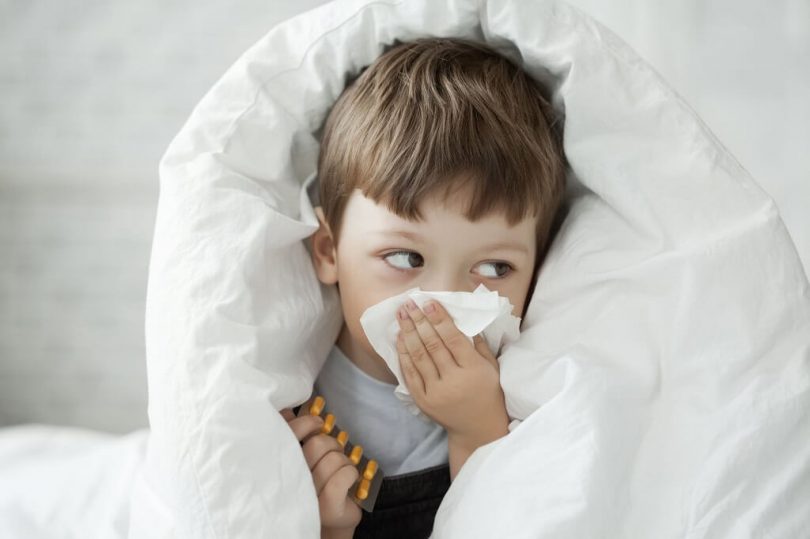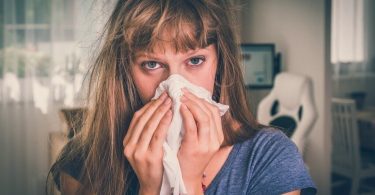How to protect from colds, flu and gastroenteritis : Staying bedridden, feverish and wacky, is not a bright prospect, especially during the holiday season. There are a few precautions you can take to protect yourself against winter viruses.
Like every year, autumn and winter often come down to a giant slalom between colds, flu and gastroenteritis, the game of avoiding one so as not to fall into the clutches of the other.
Everything begins in fact around October with the first attacks of respiratory viruses , mainly rhinoviruses. These providers of colds then give way to the flu , whose epidemic usually starts at Christmas time and continues until March-April. For children, the bronchiolitis season , caused by the respiratory syncytial virus, begins between October and November.
Contents
Why are we more vulnerable to viruses in winter?
- ” The cold lowers our immune defenses and irritates the nasal mucosa, which makes us more susceptible to infections,” confirms the biologist.
- Another favorable factor: promiscuity. The cold, wind and humidity encourage us to protect ourselves in confined and often poorly ventilated places. This is equivalent to shutting yourself up in a culture broth.
Steps to know to limit the risk of contamination
Respiratory viruses, but also gastroenteritis viruses, are transmitted by coughing, sneezing and by contact with contaminated hands. Small, simple gestures allow you to protect yourself effectively.
- Wash your hands regularly with soap and water, or outside with an alcoholic solution.
- Use tissues that we can throw it into a closed bin.
- Put your hand in front of your mouth or in front of your nose when coughing or sneezing.
- Whatever the weather, continue to ventilate your home , morning and evening.
- Gargle every morning, drawing Japanese. “They are used to gargling every morning after brushing their teeth. This reduces the risk of ENT and respiratory infections by 40% and relieves sore throats, ”says Dr. Saldmann, author of Take charge of your health! ( ed. Albin Michel). The right recipe: a glass of cold or lukewarm water with half a teaspoon of salt “for an antiseptic action”. Carbonated waters are rich in bicarbonates, with antibacterial properties and some are naturally salty.
- Blow your nose. The nasal mucosa acting as an air filter, it retains dust and pollution. This is why Dr. Saldmann recommends “blowing your nose every morning, one nostril after the other, but not too hard not to propel the microbes towards the sinuses and the ears”.
- Change your toothbrush after infection, flu, sore throat or simple nasopharyngitis. As the toothbrush stays wet after being rinsed. It provides an environment favorable to the proliferation of microbes.
Consider getting the flu shot
As an influenza specialist, Dr Saldmann recalls the importance of influenza vaccination in people at risk (respiratory failure, heart disease, people over 65, pregnant women, etc.). Last year, 52% of the population concerned gave up getting vaccinated, an approach that is 100% covered by Social Security for people at risk .
It is true that prevention messages are blurred by the relative ineffectiveness of certain editions of the vaccine (as in 2014-2015). We detrerminate each year the composition of the vaccine by the World Health Organization according to the circulating influenza viruses.
According to Santé Publique France, 18,300 deaths during the last winter (90% of which were people over the age of 65) are attributable to the flu epidemic. Knowing that the vaccination campaign started in mid-October and that it takes fifteen days after the injection for the body to produce enough antibodies, it is time to think about it.
Beware of sanitizing sprays
It is tempting to spray deodorants and other “sanitizers” to purify your home. But scientific studies show that these sprays can be harmful to health. Nicole Le Moual, epidemiologist at Inserm, has participated in several researches on this subject: “We have shown that regular use of sprays for household use, especially against bad odors, we can associate it with a higher number of asthma symptoms in women. “
As for essential oil sprays , a survey by the monthly Que Choisir showed, in November 2014, that they pollute indoor air as much as the others.
Read also:
How to cure my flu?
Cold or flu, what are the differences?
All you need to know about the flu
Influenza vaccine: how does it work?
Are home remedies for colds and flu effective?
4 natural solutions to prevent the flu







